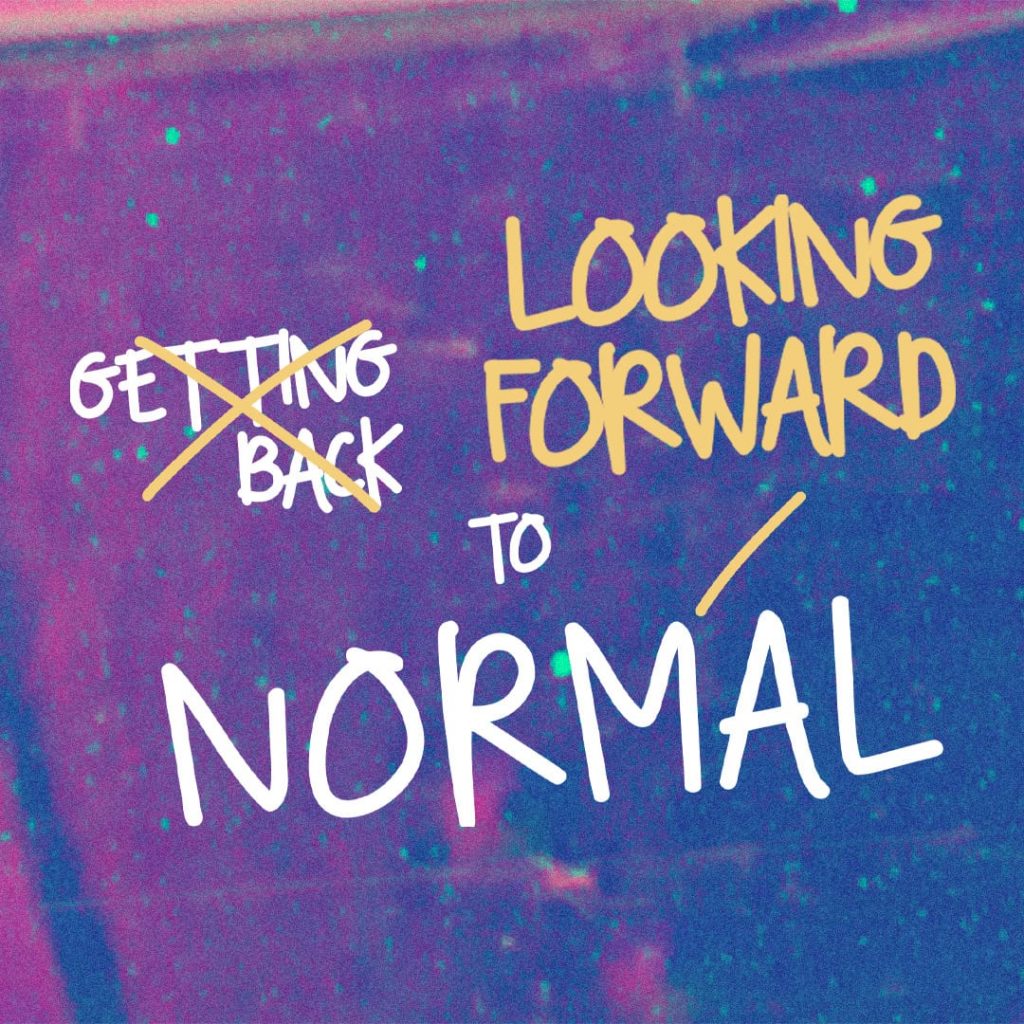
News and data regarding coronavirus is encouraging. An expression I hear often is: “I will be so glad when we get back to…”. I understand the sentiment but I’m not so sure it is a realistic expectation. Sure, there will some things that we will “get back to”, eating out for example. However, what eating out looks like in the future most likely will not be what we experienced pre-covid. If our mindset is “getting back to”, we are going to be disappointed and frustrated.
I do not believe the events of 2020 and 2021 are temporary interruptions, but are irreversible change, there is no “getting back to”. Responding, personally or organizationally with a strategy to “get back to” is short sighted. As Richard Rohr says in the quote below, we need to “go to a new place”.
The word change normally refers to new beginnings. But the mystery of transformation more often happens not when something new begins, but when something old falls apart. The pain of something old falling apart—chaos—invites the soul to listen at a deeper level, and sometimes forces the soul to go to a new place.
We will normally do anything to keep the old thing from falling apart, yet this is when we need patience and guidance, and the freedom to let go instead of tightening our controls and certitudes.
While change can force a transformation, spiritual transformation always includes a disconcerting reorientation. It can either help people to find new meaning or it can force people to close down and slowly turn bitter. The difference is determined precisely by the quality of our inner life, our practices, and our spirituality.
In moments of insecurity and crisis, shoulds and oughts don’t really help. They just increase the shame, guilt, pressure, and likelihood of backsliding into unhealthy patterns. It’s the deep yeses that carry us through to the other side. It’s that deeper something we are strongly for—such as equality and dignity for all—that allows us to wait it out. It’s someone in whom we absolutely believe and to whom we commit. In plain language, love wins out over guilt any day.
Richard Rohr
Although Rohr’s focus is spiritual, his counsel is profoundly practical. We are at a critical juncture. As individuals or leaders, choosing to “get back to” is not a viable option. It is the responsibility of leadership to to help people find new meaning, encouraging and leading them forward in a new reality. Equally, it is the responsibility of each follower to embrace new realities and resist demanding “get back to”.
These unwanted moments when we cannot change the reality we face offer the most profound possibilities of true life change. It may be precisely because the situation cannot change that everything else can change.
J D Walt
The Israelites said to them, “If only we had died by the Lord’s hand in Egypt! There we sat around pots of meat and ate all the food we wanted, but you have brought us out into this desert to starve this entire assembly to death.”
Exodus 16:3
Still on the journey